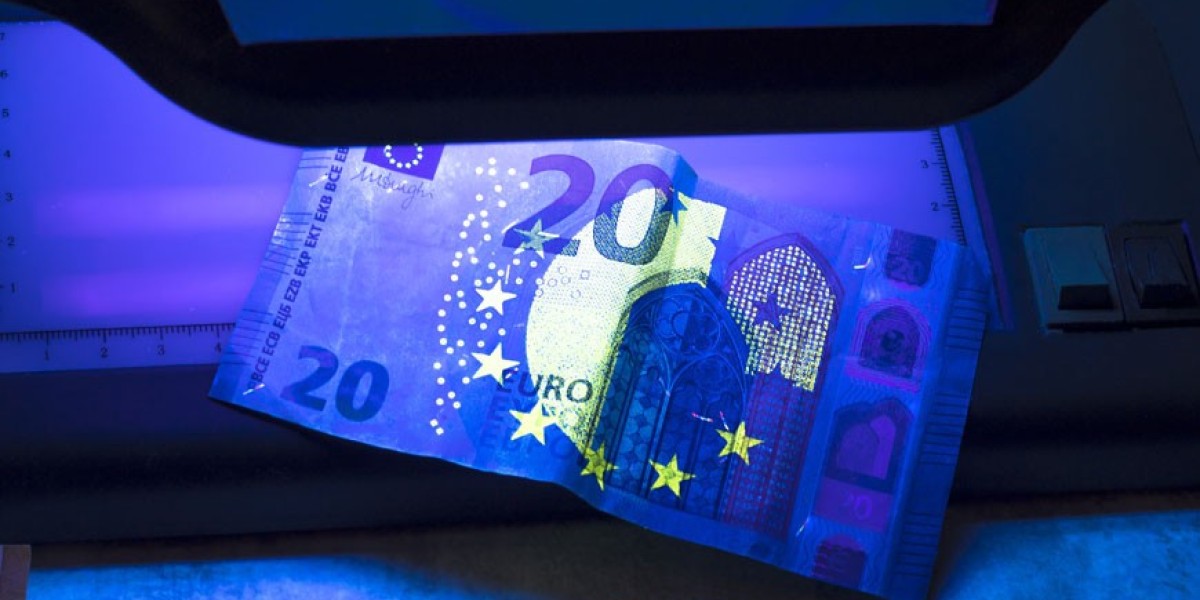The topic of counterfeit money is often shrouded in mystery and intrigue, capturing the imagination of many with its illegal allure. However, engaging with "reputable counterfeit money providers" is a dangerous and illegal endeavor. This article aims to dispel the myths surrounding counterfeit money, highlight the severe legal and financial consequences, and provide a detailed understanding of why one should never consider obtaining or using counterfeit currency.
The Allure and the Reality of Counterfeit Money
Counterfeit money has been a subject of fascination for centuries. From ancient times when skilled forgers replicated coins, to the modern era where sophisticated printing techniques are used to create paper currency, the act of counterfeiting has evolved significantly. The allure of counterfeit money is obvious: the prospect of having unlimited funds without the need for legitimate earning can be tempting. However, the reality is starkly different. The production and use of counterfeit money are not only illegal but also fraught with risks that can have long-lasting and devastating consequences.
The Legal Consequences
The laws surrounding counterfeit money are stringent and globally enforced. In the United States, for example, counterfeiting is a federal crime, and those found guilty can face up to 20 years in prison and substantial fines. Similar harsh penalties exist in other countries, including the United Kingdom, Canada, and Australia. The legal system takes a zero-tolerance approach to counterfeiting, and the consequences can extend beyond just the individual involved. Family members, friends, and even innocent bystanders can be implicated if they are found to be in possession of counterfeit money, even if they were unaware of its illegality.
The Financial Risks
While the immediate financial gain from using counterfeit money might seem attractive, the long-term risks are severe. Financial institutions and law enforcement agencies are highly adept at detecting counterfeit currency. Once identified, the loss is often borne by the individual who used the fake money, not the bank or the merchant. This means that the individual not only faces legal charges but also the financial loss of the amount they attempted to pass. Moreover, the use of counterfeit money can lead to a permanent black mark on one's credit record, making it difficult to secure loans, credit cards, or even employment in the future.
The Ethical Implications
Beyond the legal and financial risks, the ethical implications of using counterfeit money are significant. Counterfeiting undermines the integrity of the financial system, leading to inflation, economic instability, and a loss of trust in the currency. It disproportionately affects small businesses and individuals who may not have the resources to absorb the financial loss. Additionally, the act of counterfeiting often involves organized crime, which can lead to other illegal activities such as money laundering, drug trafficking, and human trafficking.
How Counterfeit Money is Detected
Understanding how counterfeit money is detected can help individuals recognize and avoid using fake currency. Here are some of the key methods and technologies used by financial institutions and law enforcement:

1. Security Features
Modern currencies are equipped with numerous security features that are difficult to replicate. These include:
- Watermarks: Visible when held up to light, watermarks are embedded in the paper and can be difficult to reproduce.
- Color-Shifting Ink: This ink changes color when viewed from different angles, making it hard for forgers to duplicate.
- Microprinting: Tiny text that is clear and legible on genuine bills but often blurred or omitted on counterfeits.
- Security Threads: Embedded threads that are visible when the bill is held up to light and may glow under ultraviolet light.
2. Advanced Scanning Technology
Banks and businesses use advanced scanning technology to detect counterfeit money. These machines can quickly identify discrepancies in the paper, ink, and security features of a bill.
3. Training and Education
Financial institutions and law enforcement agencies provide regular training to employees to help them recognize counterfeit money. This includes familiarizing them with the latest security features and common signs of forgery.

The Impact on the Economy
Counterfeiting has a profound impact on the economy. Here are some of the ways it affects economic stability:
1. Inflation
When counterfeit money enters circulation, it increases the money supply without a corresponding increase in economic output. This can lead to inflation, where the value of the currency decreases, and prices rise.
2. Loss of Trust
Counterfeiting erodes trust in the financial system. If people are unsure whether the money they are using is real, they may be less likely to engage in economic transactions, leading to a slowdown in economic activity.
3. Increased Costs for Businesses
Businesses must invest in advanced technology and training to detect counterfeit money, which can be costly. These costs are often passed on to consumers, leading to higher prices.
FAQs About Counterfeit Money
1. How can I tell if a bill is counterfeit?
- Check the security features: Look for watermarks, color-shifting ink, and security threads.
- Feel the paper: Genuine currency has a unique texture that is difficult to replicate.
- Compare with a known genuine bill: Side-by-side comparison can reveal discrepancies in size, color, and design.
- Use a counterfeit detection pen: These pens can help identify fake bills by leaving a dark mark on counterfeit paper.
2. What should I do if I suspect I have received counterfeit money?
- Do not pass it on: Using counterfeit money is illegal and can lead to severe penalties.
- Report it to the authorities: Contact your local police or the Secret Service (in the United States) to report the counterfeit bill.
- Surrender the bill: Provide the counterfeit bill to law enforcement or your bank for further investigation.
3. Can I be held responsible for using counterfeit money if I didn't know it was fake?
- Yes, but it depends on the circumstances: While unintentional use of counterfeit money may not lead to the same severe penalties as knowingly passing fake bills, you can still face legal consequences. It is important to report any suspected counterfeit money immediately to avoid further issues.
4. What are the penalties for counterfeiting money?
- Severe fines and imprisonment: Penalties vary by country but can include up to 20 years in prison and substantial fines.
- Additional charges: Those involved in counterfeiting may also face charges related to fraud, conspiracy, and organized crime.
5. Are there any legitimate uses for counterfeit money?
- No, there are no legitimate uses: Counterfeit money is illegal and should never be used, regardless of the circumstances. Even if someone offers it as a form of payment, accepting it can lead to legal trouble.
The Ethical Dilemma of Counterfeiting
The decision to engage with counterfeit money providers is not just a fälschungen legal kaufen - research by the staff of Falschgeldkaufenonline - one but also an ethical one. Here are some points to consider:
1. The Harms of Counterfeiting
- Economic harm: Counterfeiting can lead to inflation and economic instability, affecting millions of people.
- Social harm: It can disproportionately harm small businesses and individuals who may not have the resources to recover from financial losses.
- Moral harm: Engaging in illegal activities can lead to a loss of personal integrity and ethical standards.
2. The Alternatives
- Legitimate earning: There are numerous legal and ethical ways to earn money, such as starting a business, investing, or seeking employment.
- Financial assistance: If you are facing financial difficulties, consider seeking help from legitimate sources like government assistance programs, non-profit organizations, or financial advisors.
The idea of "reputable counterfeit money providers" is a dangerous illusion. Engaging with counterfeit money is illegal, unethical, and fraught with severe consequences. The risks far outweigh any perceived benefits, and the impact on the economy and society is profound. Instead of seeking illegal methods to obtain money, individuals should focus on legitimate and ethical ways to improve their financial situation. By understanding the legal, financial, and ethical implications of counterfeiting, we can all contribute to a more stable and trustworthy financial system.
Additional Resources
For more information on the detection and prevention of counterfeit money, consider the following resources:
- U.S. Secret Service: Provides comprehensive information on counterfeit detection and reporting.
- Federal Reserve: Offers detailed guides on identifying and reporting counterfeit currency.
- Local police departments: Can provide training and resources on recognizing and reporting counterfeit money.
By staying informed and vigilant, we can all play a role in combating the illegal and harmful practice of counterfeiting.







